Ensuring health care for young mothers in Rwanda
They are not children, but not yet women. When teenagers become mothers, they risk falling through the cracks. Our partner organisation Empower Rwanda collaborates with a health centre to ensure the well-being of 200 young mothers living in poverty.
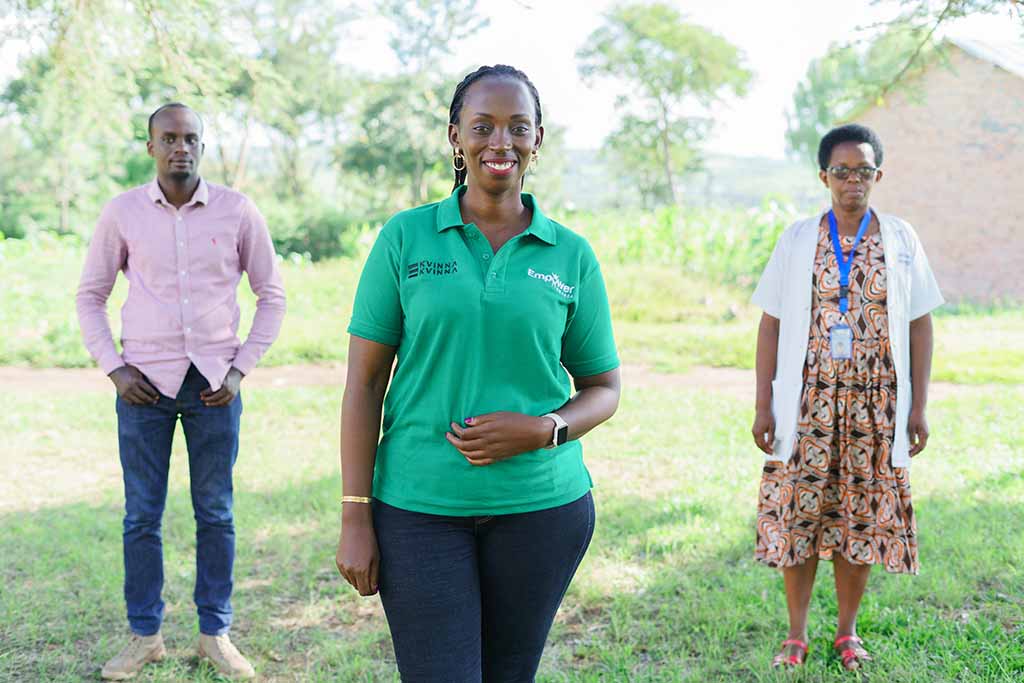
In Nyagatare district, a three-hour drive north-east of Kigali, lies Bugaragara health centre. The facilities are spread out across a small slope behind a metal gate and consist of wings of single-storey brick buildings. During this hot afternoon, a few patients are waiting in the shade outside the consulting rooms. Some of the white doorways are blocked by curtains, through others you can glimpse the brightly painted yellow walls inside.
Health screening
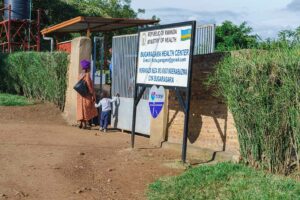
The Bugaragara health centre has 22 staff members and covers Rwimiyaga sector, which is a part of Nyagatare district. It is the focal point for 64,000 citizens, of which 25% are teenagers, according to Maurice Kagame, head of the centre. The centre has a pharmacy, a test centre for HIV and offers maternal health care. Photo: Gloria Powell
For more than a year, the health centre has been collaborating with Empower Rwanda, one of Kvinna till Kvinna’s partner organisations. Empower Rwanda works with teen mothers who are among the poorest in Rwanda. In Nyagatare alone, they reach 200 teen moms—and many need health care.
“These are girls that have gone through trauma. Some of them have been raped, all of them have given birth. They need to be made aware of their rights and what medical treatments are available,” says Olivia Promise Kabatesi, founder of Empower Rwanda.
At the health centre, girls can receive a health screening and get tested for sexually transmitted infections as well as HIV. If they are HIV positive, the centre provides a treatment plan, and the Rwandan government covers medicinal costs.
Overcoming trauma
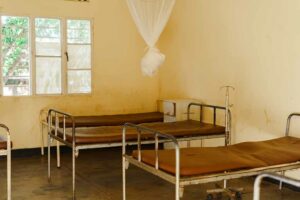
Hospital beds at the Bugaragara health centre. Photo: Gloria Powell
Teenage pregnancy is a widespread problem in Rwanda. Gender-based violence is common (many girls get pregnant after rape) and knowledge about sexual and reproductive health and rights is low.
Many teenage mothers are stigmatised by their families and forced to drop out of school to give birth. An important part of the treatments offered by the centre is therefore counselling. One of the counsellors, Xaverine Mukabideli, explains that she has about 4-5 individual sessions per day.
“I feel happy and very grateful for my job when I see girls starting over from scratch and really working to overcome their trauma,” says Xaverine who emphasises the importance of education and encouraging young mothers to re-enrol in school.
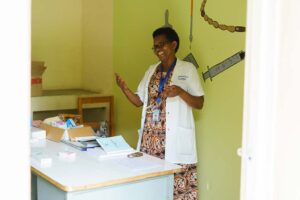
Xaverine Mukabideli in her consulting room. Apart from counselling, she also gives advice on contraceptives and the centre provides condoms to patients free of charge. This has reduced un-wanted pregnancies in the area. Photo: Gloria Powell
Health insurance an issue
Many girls lose the support of their communities when they learn they are pregnant. Alone and without education, girls living in poverty struggle to provide for themselves and their babies.
For example, health insurance covering the costs at the health centre can be obtained for 3,000 Rwandan francs (about 3 US dollars) per person and year. A sum many teen mothers can’t afford. Sometimes, Empower Rwanda steps in to find ways to cover the costs for both mother and child for the girls in their programmes.
“The important thing is that the girls can start their treatments,” says Olivia.
Many walk far
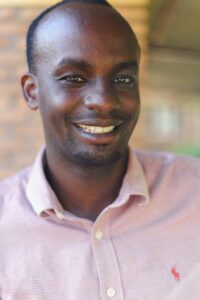
Maurice Kagame is a nurse and has been the head of the health centre for four years. Photo: Gloria Powell
Maurice Kagame, head of the health centre, also points to the lack of insurance as one of the biggest challenges for women and girls in the sector. Many patients also have to walk far to get to the centre.
“This sector is scattered. Some may come from 20, 30, 40 kilometres away and they don’t have money to afford transportation,” says Maurice.
He explains that women and girls who come for preventative care and health education are usually close geographically and that they wish they had a larger outreach. He views the girls in Empower Rwanda’s programme, who also come to the health centre for trainings on sexual and reproductive health and rights, as important ambassadors who can pass on the knowledge in their communities.
“Girls can reach out where we can’t and teach others, for example how sexually transmitted infections or un-wanted pregnancies can be avoided.”
Kvinna till Kvinna has supported women’s rights in Rwanda since 2017. Since June 2021, we have supported Empower Rwanda in a project called ”Her Voice, Her Right”. Through this, Empower Rwanda reaches 200 teen mothers in Nyagatare district, among the poorest in the population of Rwanda.